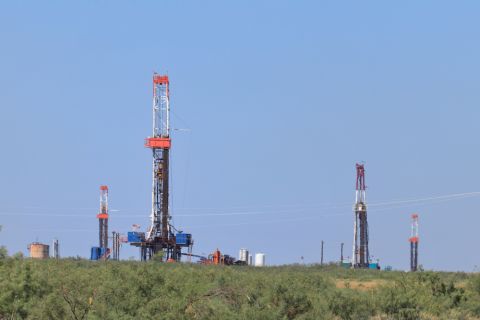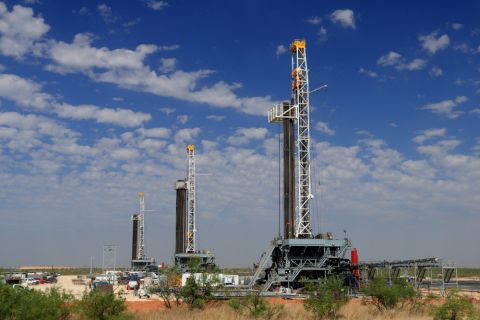?“Basing valuations solely on reserves, most stocks look cheap,” says Jeb Armstrong, analyst at Calyon Securities (USA) Inc. He and his team evaluated 46 E&P companies on proved and unproved (3P) reserves. “This is a quick back-of-the-envelope method often used to determine whether a stock may be an acquisition target.”
Current stock prices,?on average, only incorporate slightly more than the value of proved reserves. With the inclusion of unproved reserves, the upside potential leaps to almost 50%,?he says. On a proved basis, Anadarko Petroleum Corp.,?Unit Corp. and?Apache Corp. show the most upside. Bill Barrett Corp., Anadarko and Range Resources Corp.?are the most prospective with the addition of unproved reserves.
“We reiterate our top picks of Range Resources?and Anadarko,” he says. “If unproved reserves are incorporated into the valuation, the 6% premium shrinks to a 47% discount.”
On the flip side, Armstrong says eight companies?appear to be overvalued: Continental Resources Inc., Denbury Resources Inc., Petrohawk Energy Corp., McMoRan Exploration Co., PetroQuest Energy Inc., SandRidge Energy Inc., Southwestern Energy Inc. and W&T Offshore Inc.
Also, companies with substantial unbooked upside in unconventional-resource plays tend to appear to be the most richly valued when viewed only on proved reserves, although they show the greatest improvement with the inclusion of unproved reserves, according to Calyon’s analysis. Examples include?Atlas Energy Resources LLC, Chesapeake Energy Corp., Continental Resources, Devon Energy Corp., Denbury Resources Inc., Quicksilver Resources Inc., Range Resources, Southwestern and Ultra Petroleum Corp.
“When a company provides limited or no information on unproved reserves, a nominal value is added, based on undeveloped acreage,” says Armstrong. “However, this amount tends to be much smaller than were the company to have provided a 3P-reserve estimate. In most cases, management has deliberately chosen to take a more conservative approach,?resulting in an apparent overvaluation of stock relative to a company’s reserves.”
Calyon?uses the following acquisition-price assumptions: Domestic proved reserves valued at?$21 per barrel and?$3.25 per million Btu; international proved at?$18.50 and?$2.50;?probable at?$0.70 per million Btu;?possible at?$0.50; and potential reserves at?$0.30.
Armstrong notes the?methodology depends on the information a company chooses to disclose about its unproved reserves and suffers from the lack of a precise definition of a potential reserve. In addition, the type of play and its location affect a reserve’s market value. Valuations are based on pro forma proved reserves and are ?debt-adjusted.
Recommended Reading
New Permian Math: Vital Energy and 42 Horseshoe Wells
2024-05-10 - Vital Energy anticipates making 42 double-long, horseshoe-shaped wells where straight lines would have made 84 wells. The estimated savings: $140 million.
SM Energy Targets Prolific Dean in New Northern Midland Play
2024-05-09 - KeyBanc Capital Markets reports SM Energy’s wells “measure up well to anything being drilled in the Midland Basin by anybody today.”
Vår Selling Norne Assets to DNO
2024-05-08 - In exchange for Vår’s producing assets in the Norwegian Sea, DNO is paying $51 million and transferring to Vår its 22.6% interest in the Ringhorne East unit in the North Sea.
Crescent Energy: Bigger Uinta Frac Now Making 60% More Boe
2024-05-10 - Crescent Energy also reported companywide growth in D&C speeds, while well costs have declined 10%.
SLB OneSubsea JV to Kickstart North Sea Development
2024-05-07 - SLB OneSubsea, a joint venture including SLB and Subsea7, have been awarded a contract by OKEA that will develop the Bestla Project offshore Norway.





